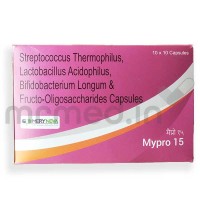Bencid tablet contains an active component of Probenecid. It is a medication used primarily to treat gout and certain other conditions. It is classified as a uricosuric agent and is used to lower elevated levels of uric acid in the blood, which can lead to the formation of urate crystals in joints and tissues, causing the painful symptoms of gout. This medication has been used in various conditions like gout, hyperuricemia, as antibiotic therapy enhancement, tuberculosis (TB), cystic fibrosis, and neurological disorders. A gout is a form of arthritis characterized by sudden and severe joint pain, often affecting the big toe, due to the buildup of uric acid crystals in the joints. Hyperuricemia is a medical condition marked by elevated levels of uric acid in the blood, which can lead to the formation of urate crystals and contribute to conditions like gout and kidney stones. Cystic fibrosis is a genetic disorder that affects the respiratory, digestive, and reproductive systems, causing thick and sticky mucus buildup in various organs, leading to respiratory and digestive complications.
If you are hypersensitive or allergic to Bencid tablet, taking certain precautions and seeking medical guidance is important. Hypersensitivity or allergic reactions to medications can vary in severity and may include symptoms ranging from mild skin rash to more severe reactions like difficulty breathing or anaphylaxis. It should be avoided in patients with a history of urate kidney stones, severe kidney impairment, and certain blood disorders such as hemolytic anemia. Patients experiencing acute gout attacks or active urate-lowering therapy should not use this medication, as it can exacerbate symptoms and interfere with treatment efficacy. Prior consultation with a healthcare professional is crucial before initiating this medication or changing its usage, especially in individuals with pre-existing medical conditions or those taking other medications that could interact with it. It is generally not recommended for children without specific medical guidance and supervision. Pediatric dosing and safety considerations can be quite different from those in adults. In elderly individuals, Bencid tablet should be approached with caution due to age-related changes in kidney function and the potential for interactions with other medications commonly taken by older adults.
- Gout management
- Hyperuricemia treatment
- Antibiotic therapy enhancement
Therapeutic Effects of Bencid Tablet
Pregnancy
Bencid tablet should be used during pregnancy only if needed and under the direct supervision of a healthcare provider.
Breast Feeding
Consult a healthcare provider before using Bencid tablet while breastfeeding to weigh the potential benefits against any potential risks to the infant.
Lungs
If you have lung conditions, it's important to inform your healthcare provider before using Bencid tablet.
Liver
If you have liver conditions, consult a healthcare provider before starting this Bencid tablet.
Alcohol
Before consuming alcohol while taking Bencid tablet, it is advisable to consult your healthcare provider.
Driving
If you experience any dizziness, drowsiness, or other adverse effects that could affect your ability to drive or operate machinery, it's best to consult a healthcare provider before starting Bencid tablet.
Serious:
- Allergic reactions
- Severe skin reactions
- Blood disorders
- Kidney dysfunction
Common:
- Gastrointestinal upset
- Rash and skin reactions
- Elevated liver enzymes
- Upper respiratory tract infections
- Headache
- Fatigue
Your healthcare provider may offer dietary recommendations, particularly regarding foods high in purines, to help manage your condition while taking Bencid tablet.
If you miss a dose, take it as soon as you remember. However, if it's close to the time for your next dose, skip the missed dose and resume your regular dosing schedule. Do not double the dose to catch up.
Bencid tablet is not expected to impact exercise or physical activity significantly. However, adjust your activities accordingly if you experience dizziness or other side effects.
Bencid tablet may cause gastrointestinal upset in some individuals. Discuss the potential risks and benefits with your healthcare provider if you have a history of stomach ulcers.
Weight gain is not a commonly reported side effect of Bencid tablet. If you experience any unexplained weight changes, discuss them with your healthcare provider.
Side effects may not necessarily occur immediately upon starting Bencid tablet. Some side effects might develop over time, while others may appear shortly after initiation.
Molecule name: Probenecid | Therapeutic class: Antigout Agents |
Pharmacological class: Uricosuric Agents | Indications: 1. Gout management 2. Hyperuricemia treatment 3. Antibiotic therapy enhancement |


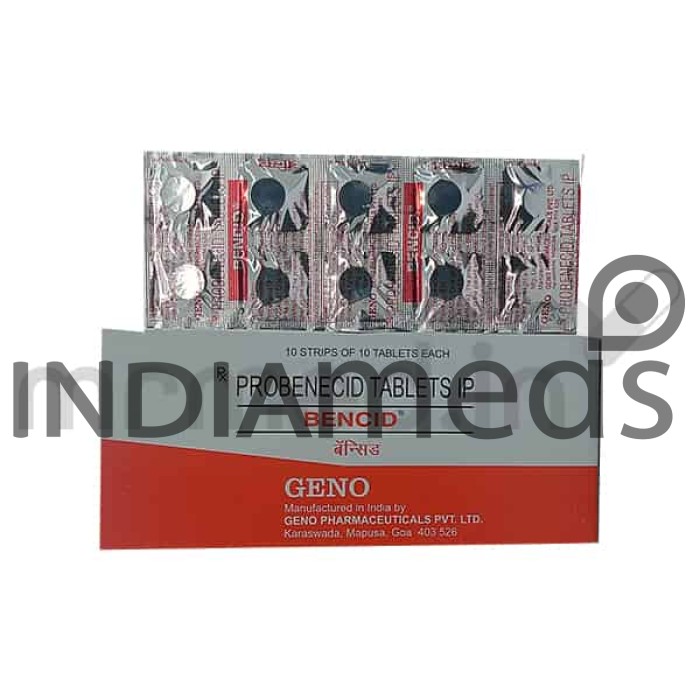
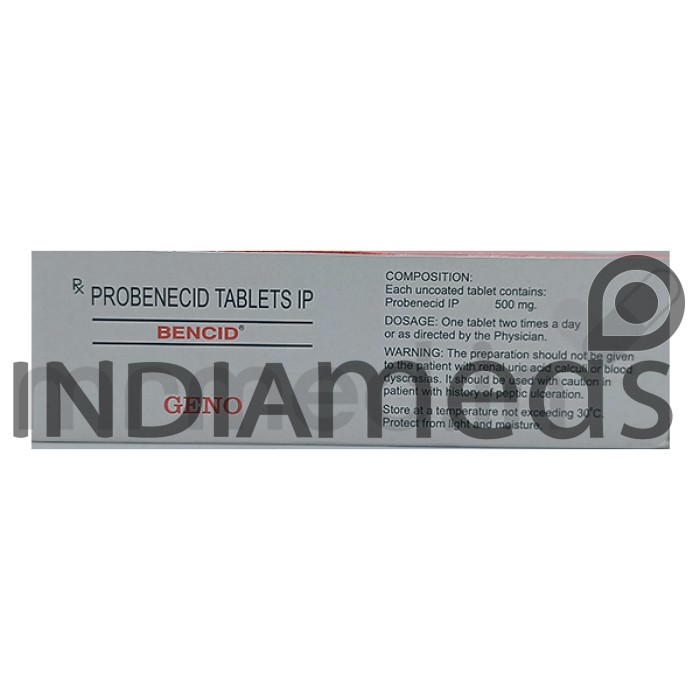
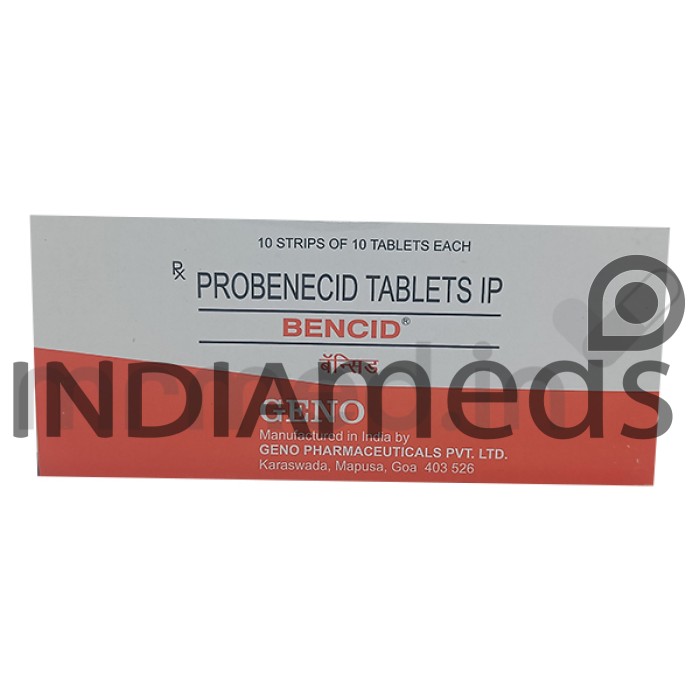
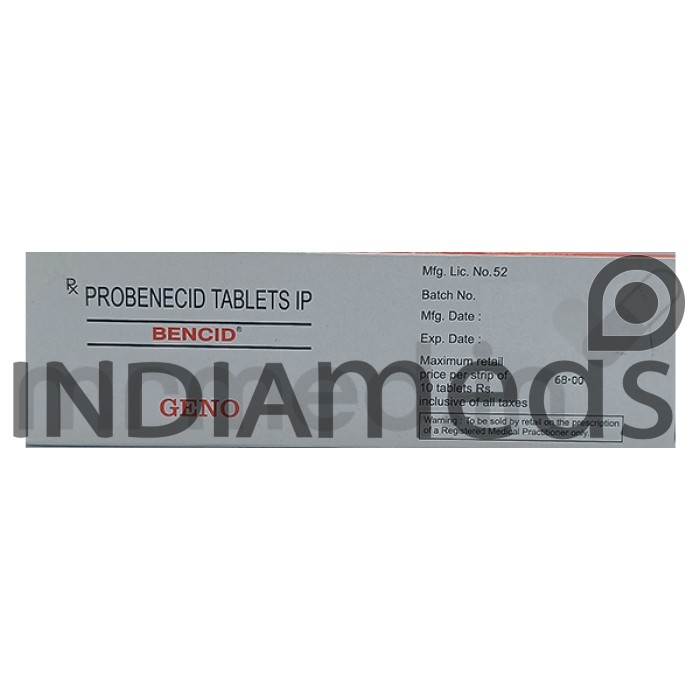




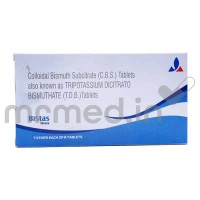

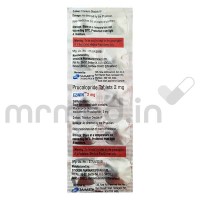

-200x200.jpg)
